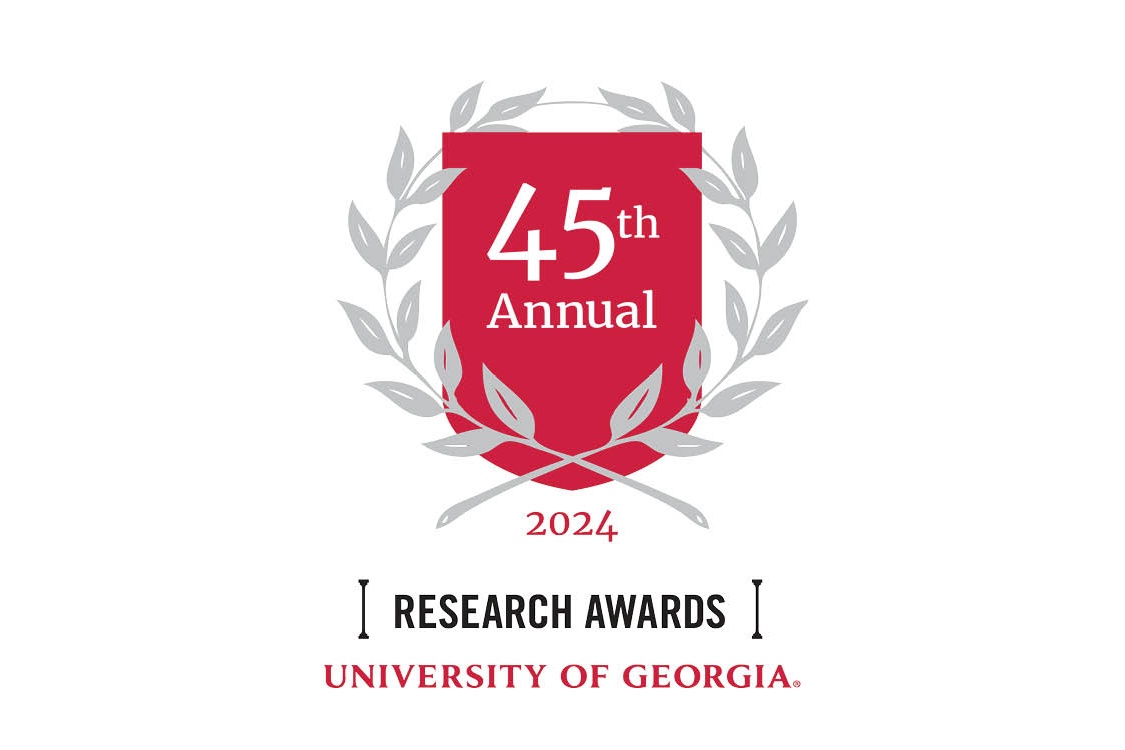The key to feeding the world’s growing population this century will be to empower the 2.5 billion people, worldwide, who depend on small farms for their food and livelihood.
That answer comes from Sanjaya Rajaram, winner of the 2014 World Food Prize, who spoke to University of Georgia community members gathered at the College of Agricultural and Environmental Sciences' annual D.W. Brooks Lecture on Nov. 10.
Rajaram, who spent his career breeding more sustainable and productive wheat varieties at the International Maize and Wheat Improvement Center in Mexico, told the 375 students, faculty and staff gathered at this year’s lecture that it was imperative that crop scientists continue to use all of the tools available to them to develop more productive and more sustainable crop varieties.
Since many food insecurity issues are born from food distribution issues, small-scale farmers needed to be empowered with the same tools available to industrial farmers in order to solve food scarcity. About 2.5 billion people depend on small farms for their sustenance and livelihoods. Better seed and more education about soil and environmental stewardship are essential, he said.
“If we do this right, this will make a tremendous difference in the world and help these 2.5 billion people,” Rajaram said. “It’s not enough to increase the pile of food (available). We believe that if we can produce a tremendous mountain of food, it will reach them, but that won’t happen.”
He pointed to the legacy of D.W. Brooks, who empowered Georgia’s small farmers during the first half of the 20th century, as an example of what can happen when poor farmers are given the training and resources they need to succeed.
The college has been celebrating the legacy of Brooks since 1981. Brooks holds the honor of being both the youngest and the oldest professor to teach at UGA. He started teaching agronomy at CAES when he was 19 years old, and after a impactful career in agribusiness, he returned to lecture at the college when he was in his 90s.
As the founder of the Georgia Cotton Producers Association, the cotton growers’ cooperative that became Gold Kist Inc. in the 1970s, Brooks transformed the economic reality of farmers in Georgia during the 20th century. Even today, his work in Georgia holds lessons for agricultural development projects around the globe, said his daughter, Nancy Brooks.
“He saw the need in Georgia in the 1920s,” Brooks told the crowd at the awards banquet following the lecture. “When he started Cotton Producers in Georgia in 1930, the average amount of money that crossed a farmer’s hand (annually) was $72. What he said was that these people do not have to starve, their children do not have to starve …
"He set to work to change the whole economic structure of the farmers in Georgia through good seed, through fertilizer, through marketing that put money into the farmer’s hand and not in the middleman’s hand. Those same procedures could be used in any country in the world. The wonderful lecture that we heard tonight showed that the same ideas are absolutely transferable.”
She congratulated the winners of this year’s D.W. Brooks Awards for Excellence and CAES Faculty and Staff Awards for training students, developing technology and providing the educational outreach that will help to feed the world. The winners are as follows.
- Peggy Ozias-Akins, a professor in the Department of Horticulture and director of the UGA Institute of Plant Breeding, Genetics and Genomics, won the D.W. Brooks Distinguished Professor Award.
- Ronald Pegg, an associate professor in the Department of Food Science and Technology, won the D.W. Brooks Award for Excellence in Teaching.
- George Vellidis, a professor in the Department of Crop and Soil Sciences, won the D.W. Brooks Award for Excellence in Research.
- Phil Brannen, a professor in the Department of Plant Pathology, won the D.W. Brooks Award for Excellence in Extension.
- Jennifer Grogan, Mitchell County Extension coordinator and 4-H agent, won the D.W. Brooks Award for Excellence in Public Service Extension.
- Robert Beckstead, an associate professor in the Department of Poultry Science, won the CAES Faculty Award for Outstanding Academic Advisor.
- Mary Jane Scarborough, administrative specialist in the Department of Horticulture, won the CAES Staff Award for Administrative or Professional Support.
- Carl Hall, farm supervisor at UGA Durham Horticulture Research Farm, won the CAES Staff Award for Skilled Trades Support.
- Jennifer Berry, research professional and lab manager for the UGA Honey Bee Program, won the CAES Staff Award for Technical Support.
For more information about all of the award winners and about the legacy of D.W. Brooks, visit caes.uga.edu/events/dwbrooks.






